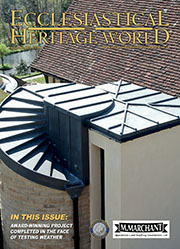Clock dials restored at St Lawrence Jewry Church, London
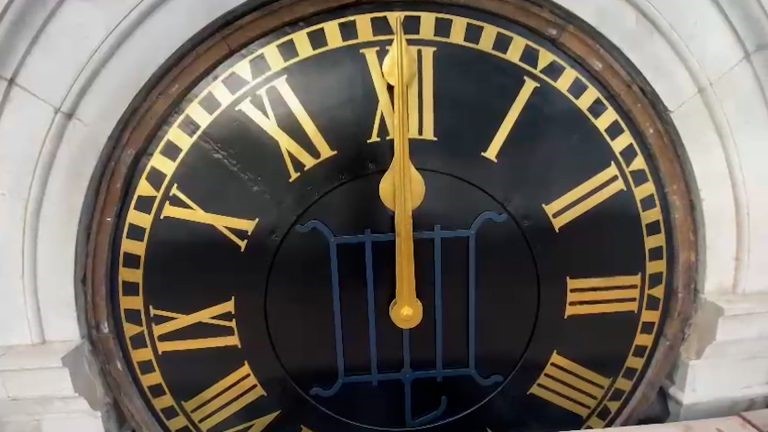 The four dials on the St Lawrence Jewry clock tower in the City of London were faithfully restored and gilded with gold leaf, and painted black – the originally colour, discovered during the restoration process.
The four dials on the St Lawrence Jewry clock tower in the City of London were faithfully restored and gilded with gold leaf, and painted black – the originally colour, discovered during the restoration process.
In October of this year, a four-man team from Smith of Derby comprising Rich, Tim, Dan and Mak travelled from the Clockworks in Derby to London with the dials. Under the guidance of project managers from Bakers of Danbury and with the assistance of the scaffolding team from Fourways, they were successful in refitting the dials to the clock tower which overlooks the Guildhall square and can be seen from much of the City.
There has been a church on the present site since the twelfth century. The first church is thought to have been built in 1136, and was destroyed in the Great Fire of London. The church was one of many re-built by Sir Christopher Wren.
Work began in 1670 and was completed in 1677. It was one of Wren’s most expensive City Churches. The name Jewry is a geographical descriptor. Before the great fire of 1666 there were many churches in the City (about 150+) and some had the same saint’s name. To distinguish them another title was attached and this is why so many of the City churches have interesting and odd names. The church is located close to a street called Old Jewry. This is where a Jewish community lived from 1066 to 1290. They came to the country with William the Conqueror and were expelled by Edward I, hence 'St Lawrence Jewry'.
During the restoration process it was discovered, that while the dials had at some point been painted blue, their original colour was in fact black, and it is with this colour that they have been restored.
Richard, who worked in the team to refit the dials, described how, “the dials were in a poor state of repair when we removed them. There were a lot of rotten sections in the lower portions of the dial. The copper sheet was coming away from the iron frame, where it had all delaminated. they’ve done a cracking job in the workshop. They’ve cut out all the rot, all the old bad metal, restored them fully, and obviously the crowning glory on the dials is the gild.”
Working in close collaboration with architects Julian Harrap, project managers Bakers of Danbury, and the scaffolding team at Fourways, the Smith of Derby team – both on-site for removal and reinstallation, and at the Clockworks for restoration and finishing – have shown the diligence and care that can be offered when working to restore dials on a historic and culturally significant building.
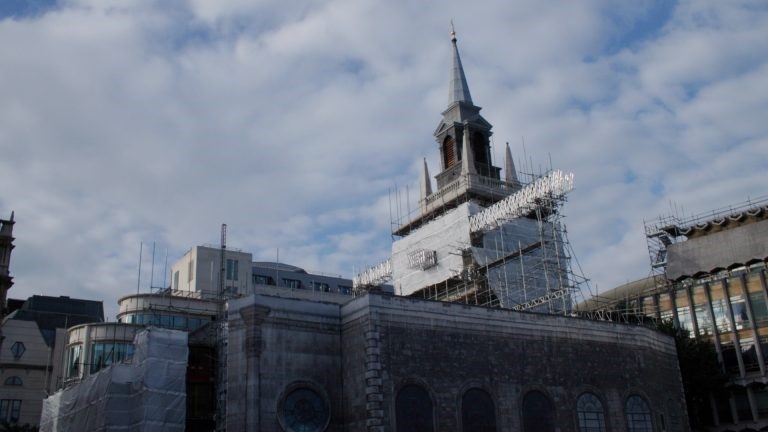 St Lawrence Jewry during restoration work
St Lawrence Jewry during restoration work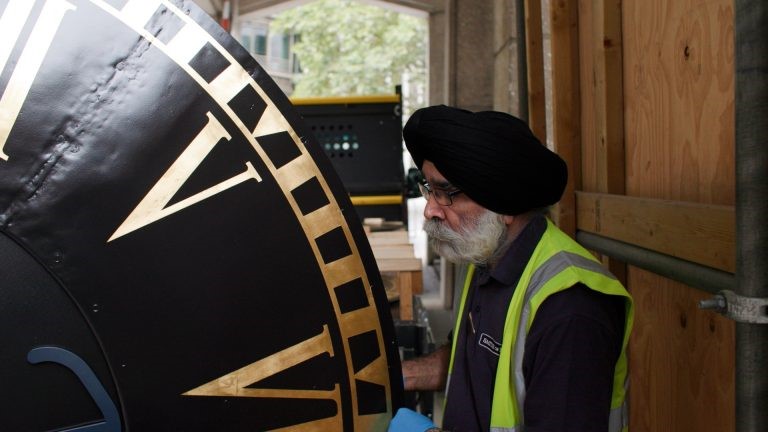 Mak and the other team members unload the dials and prepare them for being transported via the scaffolding lift to the top of the building
Mak and the other team members unload the dials and prepare them for being transported via the scaffolding lift to the top of the building
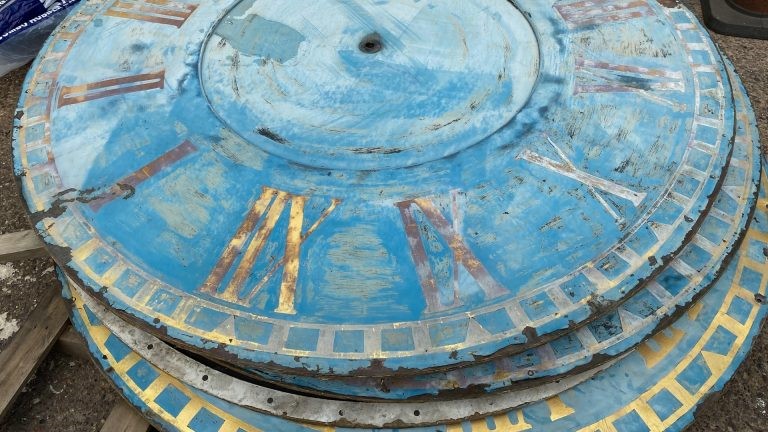 The four dials in a poor condition, after removal from the church tower
The four dials in a poor condition, after removal from the church tower
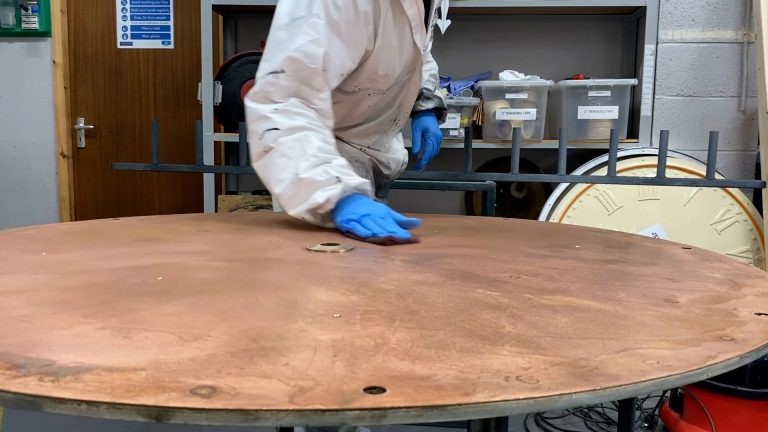 Spencer in the Derby Clockworks sands back the copper sheet
Spencer in the Derby Clockworks sands back the copper sheet
 The gridiron adorning each dial, painted in blue is symbolic of the martyrdom of St Lawrence
The gridiron adorning each dial, painted in blue is symbolic of the martyrdom of St Lawrence
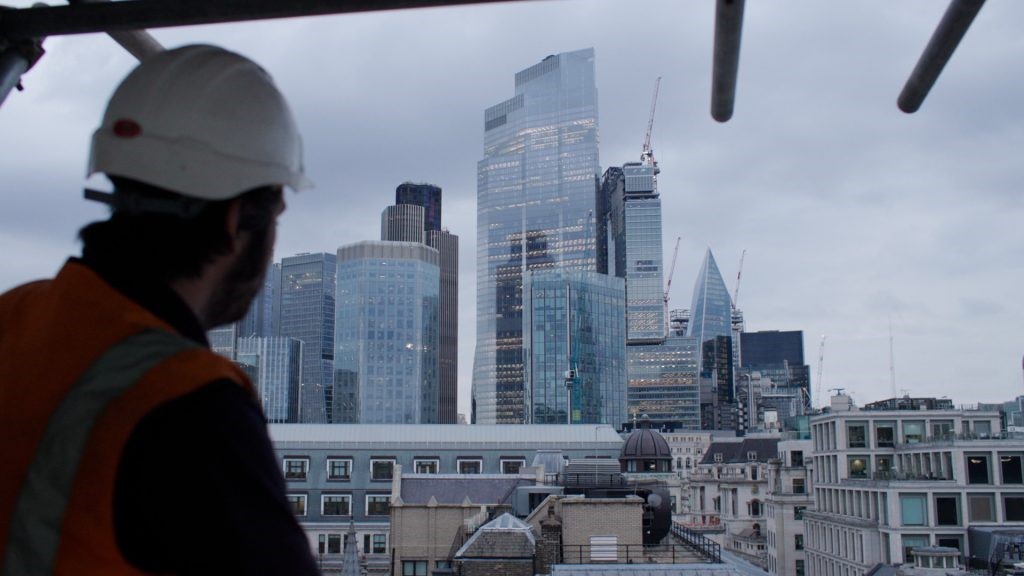 Richard looks out from the clocktower towards the city skyline
Richard looks out from the clocktower towards the city skyline
For further information visit www.smithofderby.com









